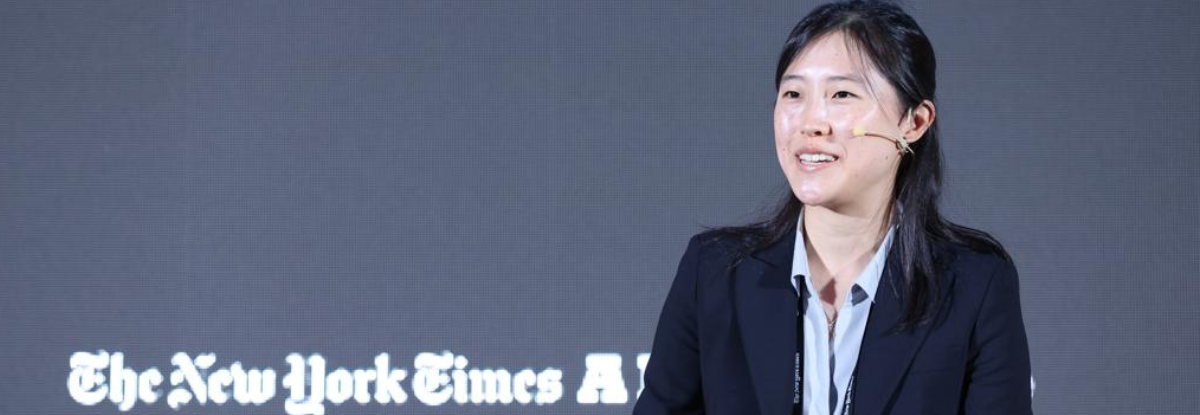Nature-based solutions highlighted at New York Times climate conference
Principal Consultant Ashley Bang reports back from the conference in Busan, South Korea.

The recent New York Times conference, A New Climate Busan, was the first of its kind to be held in Asia. A globally significant port city nestled along the coast of the East Sea, Busan was the perfect place to be discussing climate change mitigation and adaptation strategies, its impact on coastal communities, and the role of technological innovation in addressing the climate crisis.
Given the focus on technology, it was with slight uncertainty that I arrived to put the case for nature-based solutions – far from the most modern or radical approach. But nature is a great innovator, having regulated the very natural cycles that we now see spiralling out of control under human influences.
I was thrilled to see that rather than focusing on one technology as a panacea, the conference highlighted the need to see the richness and importance of mutually beneficial relationships: nature and society, global and local action, technology and the natural world. Nature-based solutions, by definition, are actions to protect, restore, and sustainably manage natural ecosystems in a way that benefit human and natural systems alike.
I was invited to speak on protecting our coasts, given my experience in developing and implementing nature-based solutions to bolster the resilience of Asia’s coral reefs, estuaries, and marine fisheries. Between conversations about green hydrogen and electric vehicles, I felt that it was important to highlight the effectiveness of nature-based solutions. While not necessarily shiny and new, they are highly effective and a crucial piece of the climate crisis puzzle. In fact, nature-based solutions have been modelled to contribute 30% of the global mitigation required by 2030 to achieve the 1.5C target under the Paris Agreement.
Another crucial point was the significant role that local communities play in developing and implementing nature-based solutions. Asia’s ecosystems and coastal communities are particularly vulnerable to the impacts of overfishing and climate change, and they employ 85% of the world’s fishers and aquaculture workers. In such a vulnerable region that faces unprecedented levels of overfishing in addition to the impacts of climate change, it is vital to elevate the voices of local communities as we develop nature-based resilience strategies.
Finally, I spoke on the private sector’s role in taking action to address climate change and nature loss. At TBC, we help businesses understand how closely linked their success is to the health of ecosystems and the natural environment. The science-driven approaches we employ bring to focus the interdependence of a company’s performance on climate and nature risks. As such, climate change and nature loss should be addressed as a business risk like any other. Market-led frameworks such as the Taskforce on Nature-related Financial Disclosures have been paving the way for companies to quantify, evaluate, and act upon nature-related risks and opportunities.
Away from my panel session, there was more evidence of the interconnectedness of technology, nature, and societies in addressing climate change. The discussions ranged from clean energy to climate migration, all of them highlighting the need to think holistically to maximize co-benefits to humans and nature. Underlying these conversations was a distinct sense of both optimism and urgency: optimism that technological innovation can drive collective action towards decarbonization while acknowledging the severity of the crisis and need to turn talk into action.
As a Korean who grew up overseas, this conference was a very special opportunity for me to connect the threads of my professional work with my cultural roots. My thanks to the New York Times for the invitation to speak, to my fellow panellists Dr Sandeep Sengupta (International Union for Conservation of Nature) & Patricia Ricard (Paul Ricard Oceanographic Institute), and to the moderator Doug Schorzman (New York Times) for the enriching conversation.
Watch the session on the NYT event website.
Image credit: Park Seonggwan
Categories: Marine, Company news
Make Nature Your Business
Find out how you can make nature your business.
